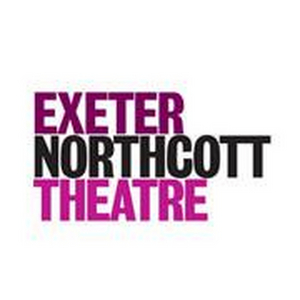Exeter Northcott Theatre Announces Online Discussion for June
Louisa Adjoa Parker, a poet and writer, will chair the discussion and she’ll be joined by a panel of guests including Alix Harris and Sandhya Dave.

Exeter Northcott Theatre will host an online discussion to explore the representation of ethnically diverse stories in its archive. Learning from the past so we can be better in the future: Considering representation and 'voice' is a free event taking place on 8 June at 7pm via the theatre's website www.exeternorthcott.co.uk.
Louisa Adjoa Parker, a poet and writer, will chair the discussion and she'll be joined by a panel of guests including Alix Harris, Director of Beyond Face Theatre and Sandhya Dave, co-founder of Devon Diversity Consultants.
The talk is part of a two-year National Heritage Lottery Funded project which uses archive materials to kickstart conversations about the role of theatre now and in the future. Working with heritage and arts specialists, the project enables interns and community groups to access the archive, select the materials that resonate with them and steer the project's development. This talk is inspired by some fascinating items uncovered by interns from the University of Exeter.
The talk will explore:
Whose stories have been told? Who is telling them? And where are the gaps?
The theatre's archive reveals some attempts at telling stories about people with diverse heritages - as well as attempts to address the lack of representation of arts practitioners and communities with diverse heritages including African diaspora people, South, East and South East Asian diaspora people, and recent immigrants to Exeter and Devon.
How have these stories been told and presented?
Who is the voice behind the communication and promotion of these works and what role do they have in the way ethnically diverse people's stories are told? The way the theatre's programme is shared and received is documented in detail in the archive through material such as press cuttings, which provide an insight into the viewpoints and interpretations that have been promoted historically.
How do we present and showcase difficult parts of history?
The role of theatre in addressing diversity and inclusion has also been acknowledged but is generally low on the agenda.
Where is the line between cultural appreciation and cultural appropriation? And can theatre entertainment be effective as education/activism?How does some of the material in the archives link with themes/concerns today? And how can we equip researchers and audiences moving forward to create positive change?
Louisa Adjoa Parker, who will chair the discussion, said:
'I'm looking forward to sharing some of my findings from my research in the archives so far and opening up the conversation around the representation of ethnically diverse people. The conversations we are currently having around 'race', anti-racism, decolonisation and the wider inclusion agenda are new and challenging; there is much to consider. I'm excited to delve deeper, particularly considering representation and 'voice' - whose stories have been told, by who, when, and how - and consider how we might learn from the past in order to move into an inclusive future where many voices are not only included, but embedded at the heart of theatre and our beautiful region.'
Latifah Wallace, Heritage Intern for Exeter Northcott, said:
'I have been focusing on the representation of BAME communities within the Northcott Theatre all the way from the theatre's opening in 1967 to the late 1990s. Being black and British myself I am particularly interested in this field of research. Theatre unfortunately is still stereotypically considered to be a form of entertainment for affluent white communities. Despite the representation of BAME performers on stage and behind the scenes being limited, I feel that it is important for these individuals to be recognised in order to change the existing image of theatre and what it represents.'This event follows a discussion earlier this month exploring Representation of Women in the theatre's archive which can be watched online: www.exeternorthcott.co.uk/heritage/the-impact-of-women/. Future topics include: Local History & Place; Access & The Arts; The Role of Regional Theatre; and The Future of Theatre.
Tickets for all events are free but must be booked in advance via www.exeternorthcott.co.uk. A live chat function is set up and viewers are invited to ask questions and join the discussion.
Comments
Videos


